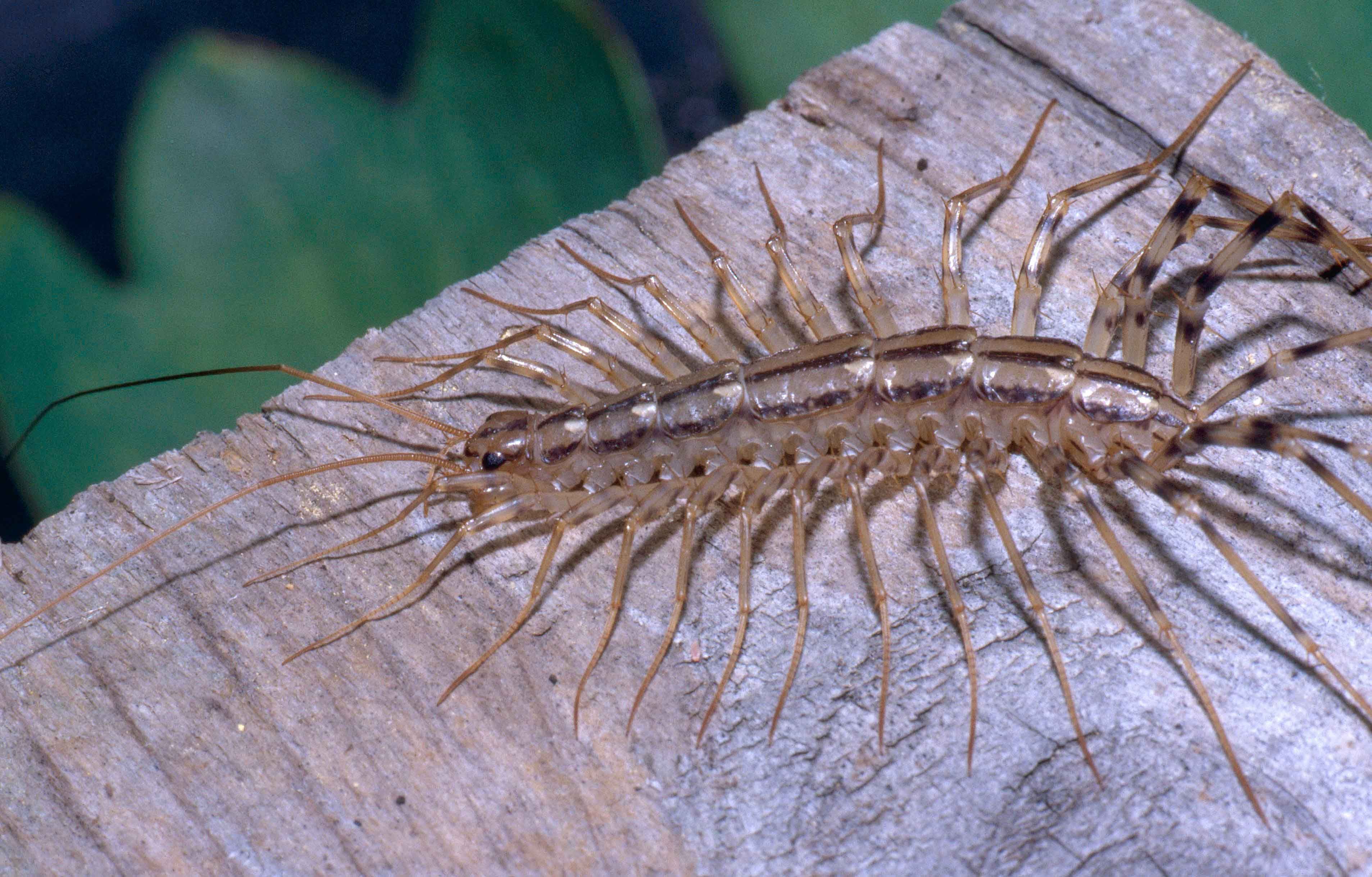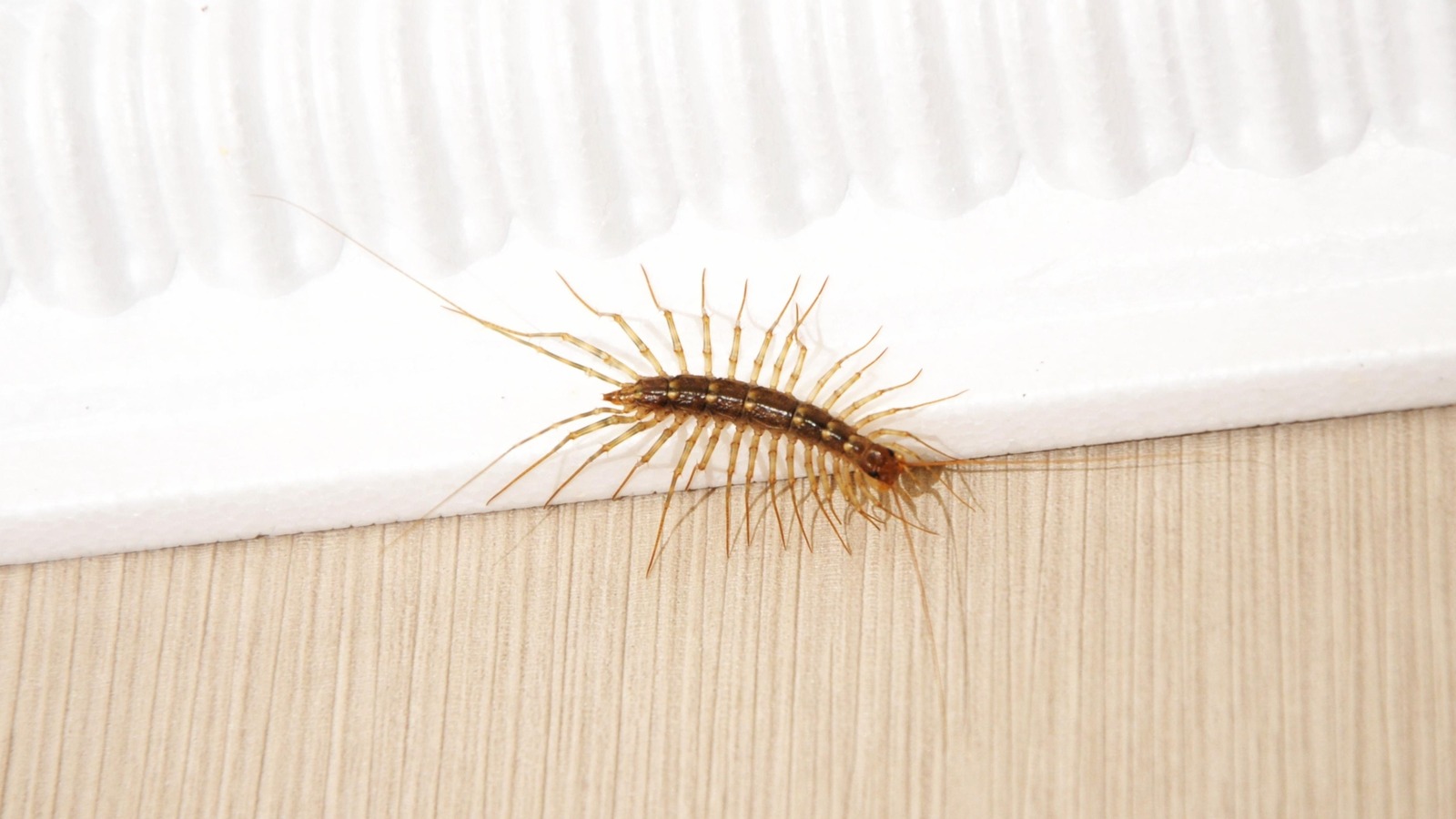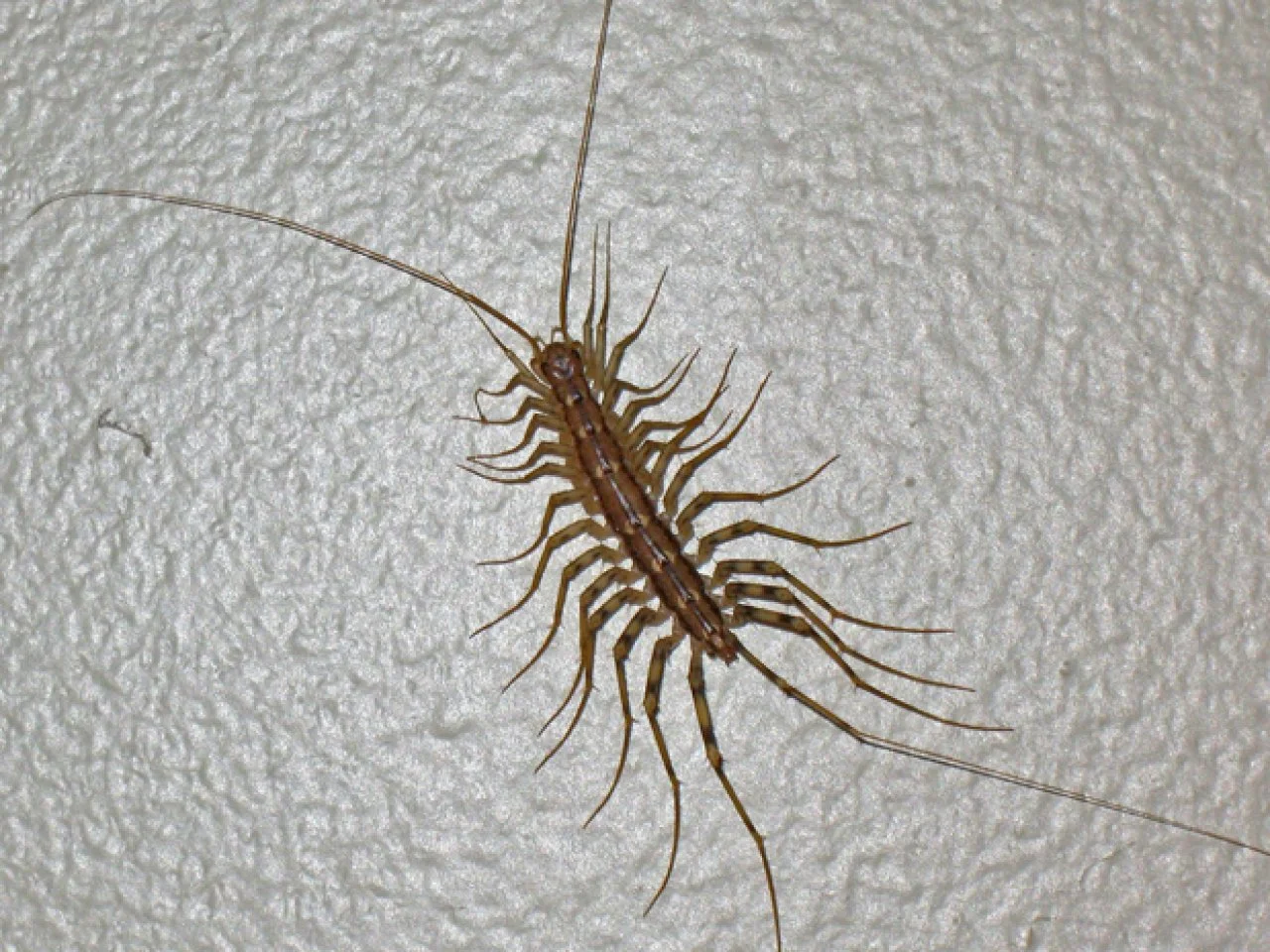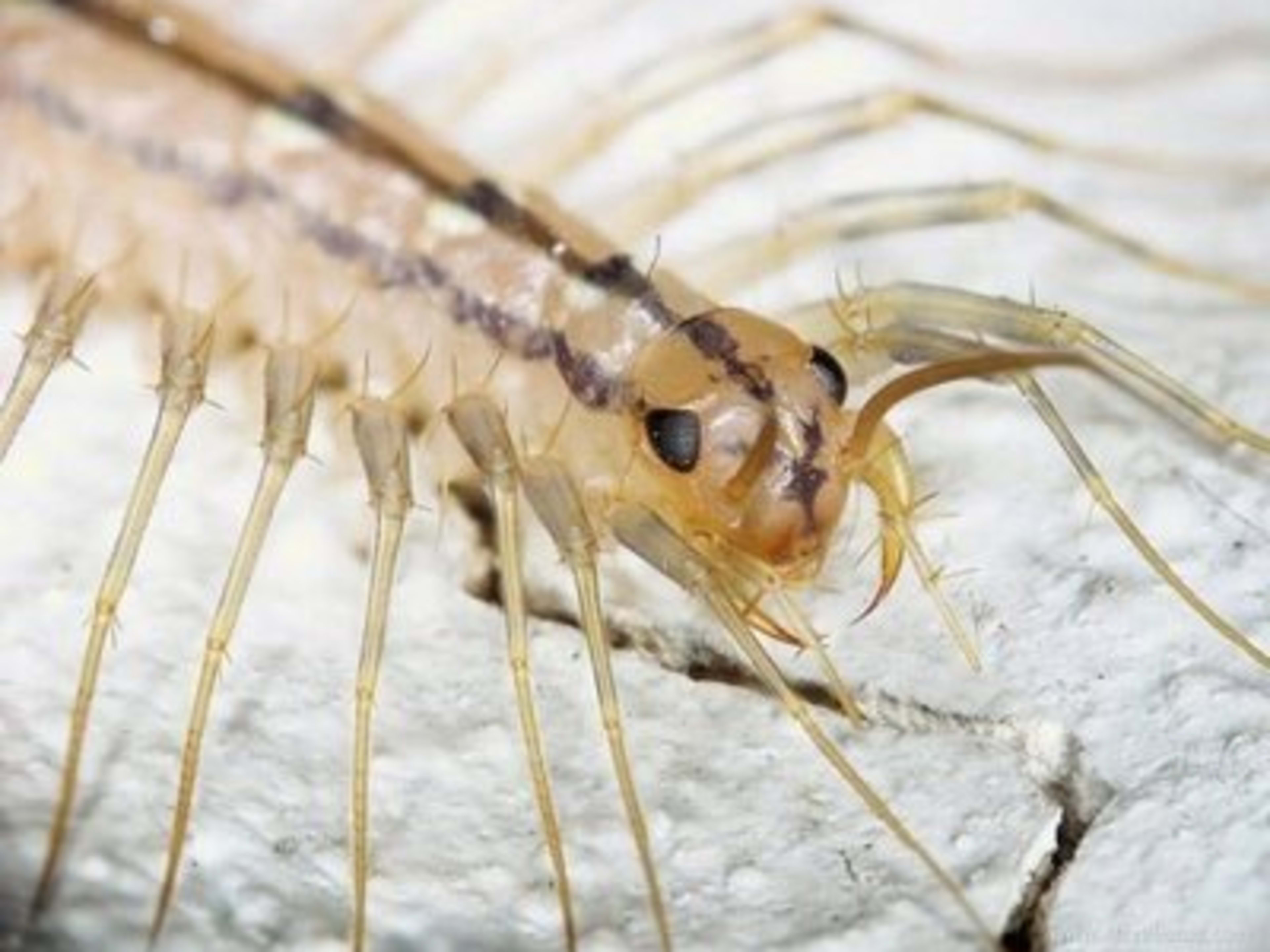House centipedes are often met with a swift reaction: many people’s first instinct is to squash them immediately upon sight. Their many legs, swift movements, and ability to appear in unexpected places make them one of the most misunderstood creatures in our homes. Yet, despite the initial shock, these seemingly frightening insects are actually beneficial allies. Before you reach for that shoe or fly swatter, consider the important roles centipedes play in natural pest control and why killing them might not be the best choice.
In this article, we’ll delve into why house centipedes deserve more respect and how allowing them to stay can help you maintain a healthier, pest-free environment in a natural, eco-friendly way.
The Role of Centipedes: Nature’s Silent Protectors

Centipedes are predators by nature, and their primary role in your home is controlling pest populations. These creatures feed on insects that can become troublesome in households, such as:
-
Cockroaches
-
Spiders
-
Silverfish
-
Bedbugs
-
Ants
-
Termites (in some cases)
House centipedes are highly efficient at seeking out and eliminating these pests. Their long legs and speed allow them to move quickly, hunting and catching prey that may be hiding in cracks or crevices around your home. In fact, centipedes are particularly effective at controlling cockroach populations, which are notorious for spreading diseases. By keeping pest numbers in check, centipedes help reduce the likelihood of infestations and improve the overall cleanliness of your living space.
Why Killing Centipedes Can Be Counterproductive

The natural instinct for many when encountering a centipede is to squash it. However, before doing so, it’s important to consider the potential impact of removing them from your home. Killing one centipede may eliminate a visible nuisance, but it also removes a valuable natural pest control agent.
Centipedes don’t only target pests that are harmful or bothersome to humans; they also help regulate the balance of the ecosystem within your home. By killing them, you may inadvertently allow pest populations, like cockroaches and bedbugs, to thrive unchecked. These pests could end up being far more difficult to manage than a single centipede. Additionally, some pests, such as cockroaches, can spread harmful bacteria, which may result in health problems like food contamination, asthma, and allergies.
The Surprising Health Benefits of House Centipedes

Centipedes are not harmful to humans in the way many other pests are. Though they can bite, their venom is not strong enough to cause significant damage to humans. The venom in their bite works primarily to immobilize their prey—this allows them to capture and consume other insects. For humans, centipede bites may cause mild irritation, such as redness, swelling, or itching. However, these reactions are generally temporary and rarely require medical attention.
In contrast, other pests that share our homes, such as mosquitoes, fleas, kissing bugs, and fire ants, pose much greater health risks. These insects can transmit diseases, including malaria, Lyme disease, and the plague. By keeping a healthy centipede population in your home, you are actually reducing your exposure to more dangerous pests.
Centipedes do not carry or transmit diseases to humans, unlike some other insects. Their role as natural predators makes them a safer alternative to using chemicals like pesticides, which can have harmful effects on both humans and pets.
The Benefits of a Balanced Approach to Pest Control
:max_bytes(150000):strip_icc()/housecent-e4f89c346af6452192d27a90668106fc.jpg)
Instead of automatically reaching for a weapon to kill every centipede you encounter, a more balanced approach to pest control can prove more effective in the long term. Recognizing which insects are beneficial and which are harmful is crucial to creating a sustainable living environment. Centipedes are essential contributors to that balance. Here’s why:
1. They Help Prevent Infestations
Centipedes naturally keep pest populations under control, preventing the onset of larger infestations. For instance, without centipedes, you might notice more spiders, which feed on insects like ants or roaches. When centipedes are present, they help prevent these other pests from gaining a foothold in your home.
2. They Reduce the Need for Toxic Chemicals
Using toxic pesticides to manage pests can have significant downsides. These chemicals often harm the environment and can also pose a risk to humans and pets. On the other hand, centipedes provide chemical-free pest control, giving you peace of mind knowing your home is being protected without harming the ecosystem.
3. They Are Part of the Natural Food Chain
Centipedes are part of the broader food chain in the natural world. Their presence in your home signifies a healthy, functioning ecosystem. Killing them disrupts this balance, leading to the overpopulation of other pests and potentially creating an environment where pests, rather than beneficial creatures, thrive.
How to Coexist with Centipedes in Your Home

If you’re uncomfortable with the idea of having centipedes around, there are some simple steps you can take to encourage a peaceful coexistence. Instead of killing them, you can gently remove them from your home using non-harmful methods, such as:
-
Capture and Release: Use a jar or cup to trap the centipede, then take it outside and release it away from your home.
-
Seal Entry Points: Ensure your home is sealed against outdoor pests by blocking cracks in windows, doors, and walls. This will prevent centipedes and other pests from coming inside in the first place.
-
Keep Your Home Clean: Maintain a clean environment by regularly vacuuming to remove other pests that might attract centipedes. This will help ensure your home remains pest-free while also minimizing the likelihood of centipedes entering your living space.
Recognizing Helpful Insects vs. Harmful Ones

One of the most important things we can do as responsible homeowners is to educate ourselves about the different types of insects that inhabit our living spaces. Not all insects are pests. Many play a vital role in maintaining a balanced ecosystem.
While ants, cockroaches, and termites are often unwelcome, insects like ladybugs, praying mantises, and of course, centipedes, are your allies. They keep the pest population under control and provide natural, low-impact solutions to household pests.
Final Thoughts: Embrace Centipedes as Allies, Not Adversaries
While house centipedes might not be the most attractive insects in your home, they serve an essential purpose: they keep your living space free of more harmful pests. Their role as natural predators, combined with the minimal risk they pose to humans, makes them valuable allies in your home.
Rather than instinctively squashing them, consider letting centipedes carry on with their work of maintaining balance and reducing pest populations. Embracing a more respectful coexistence with nature’s smallest protectors will not only keep your home healthier but will also reduce your need for harmful pesticides. In the end, the centipedes in your home are more than just another insect—they are quiet workers making your living space safer and cleaner.
